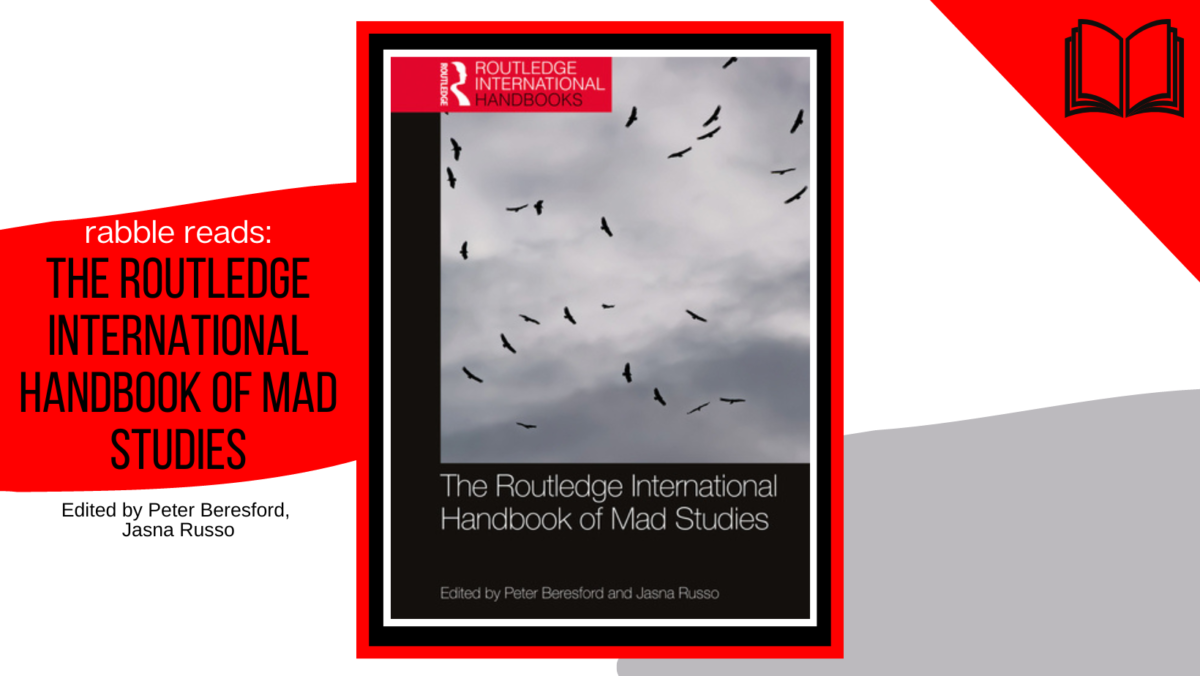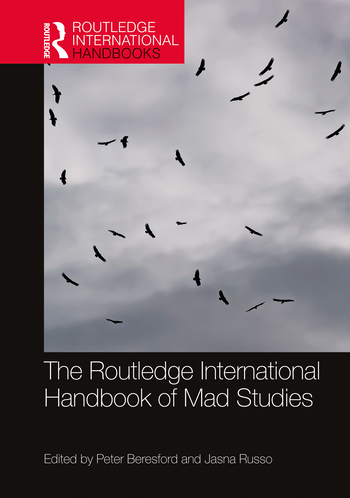What does it mean to be “mad?” The most orthodox answer invokes medical model psychiatry, which argues the mad are afflicted with a brain disease that impairs their cognitive functioning and makes their perceptions and behaviours pathological.
The go-to clinical response is a dizzying and often toxic buffet of psychotropic drugs, which are claimed to bear the same relationship to mental illness as insulin does to diabetes. Sometimes other treatment modalities are employed but the powerful products of Big Pharma are too often the only “help” that is offered. And that questionable “help” is often imposed. The allegedly mad are often locked up, electro-shocked and medicated against their will and without informed consent.
Not everyone is convinced that this model is accurate or that any imposed therapy can be helpful. Rogue psychiatrists like Thomas Szasz and R.D. Laing, courageous journalists like Robert Whitaker, feminist scholars like Vancouver’s Dorothy Smith and activist authors like Bonnie Burstow have all made persuasive arguments against orthodox psychiatry and for more attention to the lived experience of psychiatric survivors.
The Routledge International Handbook of Mad Studies is a collection of articles written from many different perspectives, all largely sharing a skeptical and critical attitude toward mainstream medical model psychiatry. The editors have sought out Mad Studies academics and grassroots mental patient’s rights activists, survivors and other activists. They include voices from the global south, including powerful essays from India, Latin America and Africa.
This book represents an important, if uneven achievement. While some of the essays included are predictably marred by their impenetrable academic jargon, others are fierce, lucid and accessible. Local Vancouver author, activist and self-described “escaped lunatic” Irit Shimrat’s Reflections on Survivor Knowledge and Mad Studies is a strong essay totally un-besmirched by jargon and full of wit and justifiable outrage. (Full disclosure. Shimrat is a friend and colleague of mine.)
In Canada, to our national shame, around 15,000 electroshock treatments, often coerced, are performed every year. And while Canada is a signatory to the United Nations Convention on the Rights of Persons with Disabilities, this country has failed to implement one of its most important clauses, the one that calls for an end to involuntary psychiatric confinement and drugging.
For more on this compelling human rights issue, consult the Mad in Canada website here.
This is an important book. Highly recommended.




